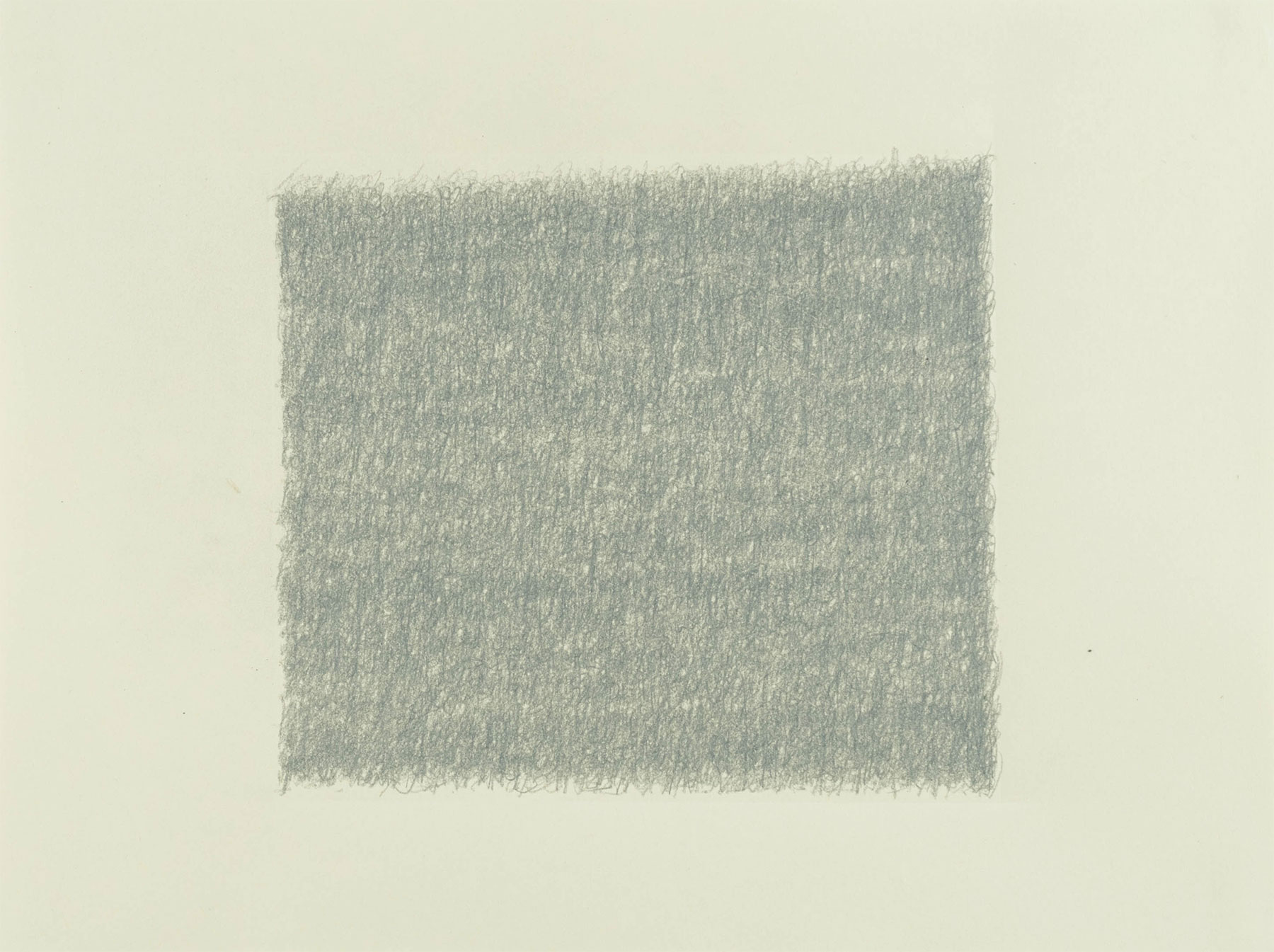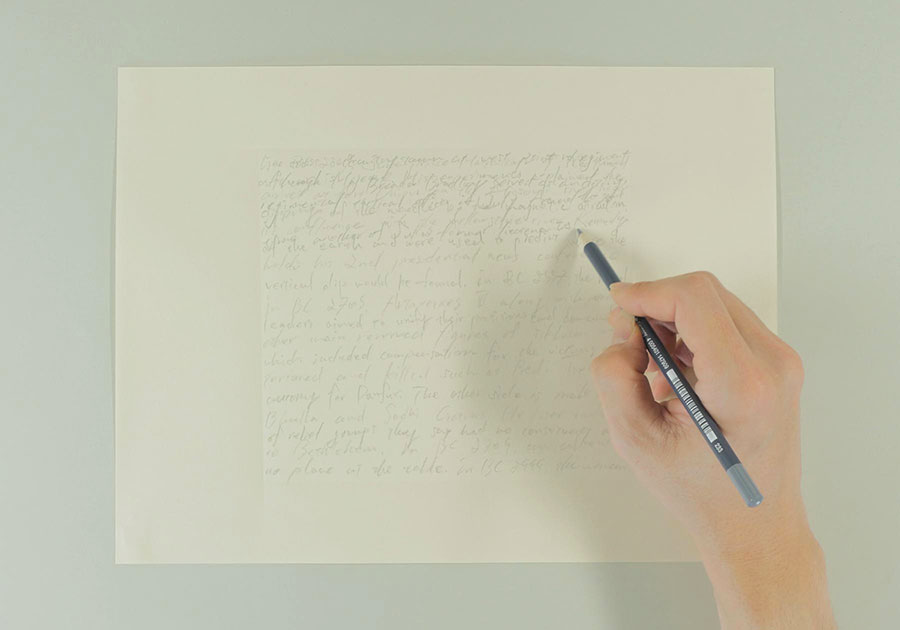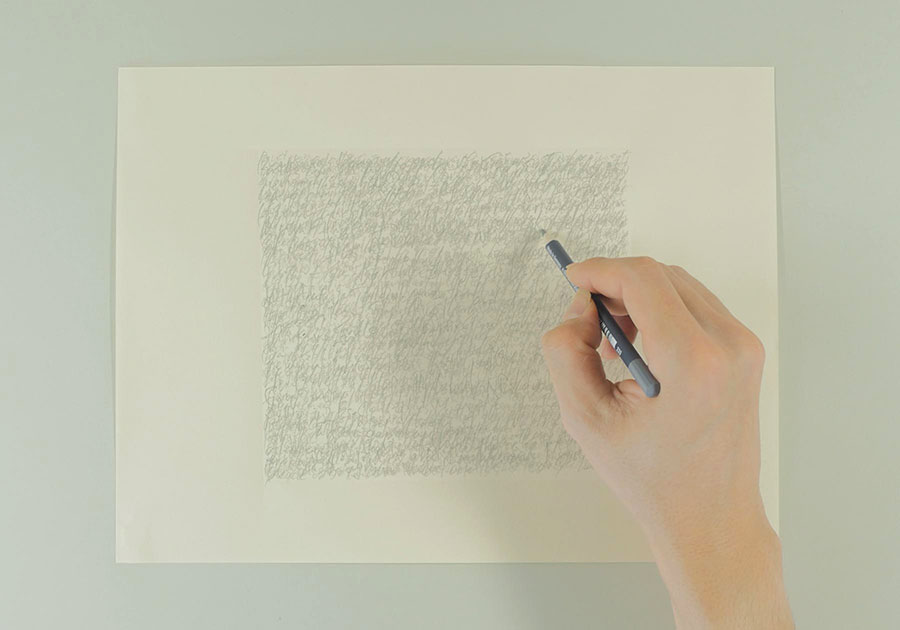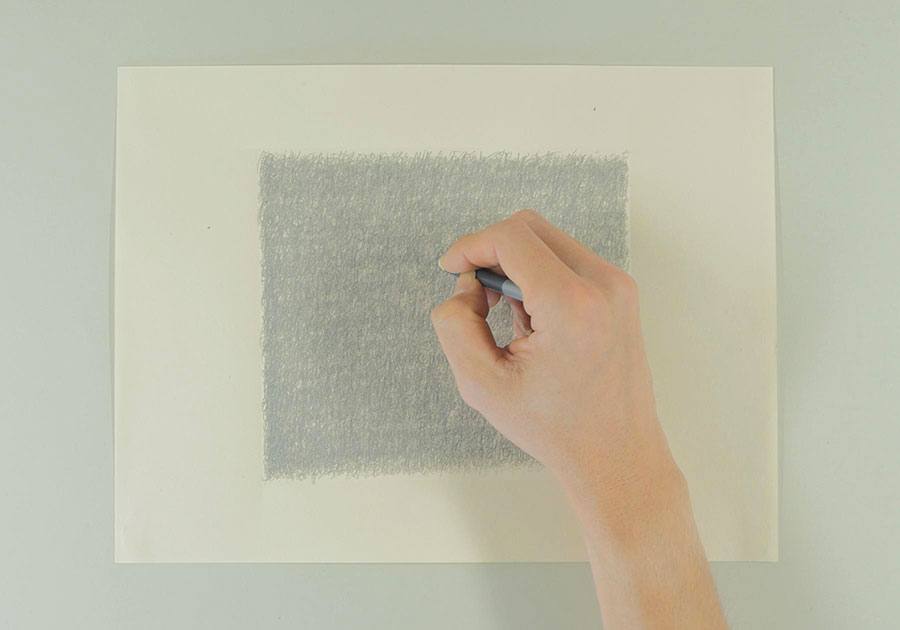A history dreams
2018
Film
Duration: 38:02
A history dreams is a film work documenting a performance in which eight historical timelines are randomly selected from Wikipedia’s “List of Timelines” page, which contained 594 timelines as of April 2018. Using the Wikipedia API, all sentences from each chosen timeline are collected. A new timeline is then generated using a Markov chain algorithm based on the gathered texts. This newly created text appears on screen and is repeatedly written down by hand. The work was inspired by a passage from philosopher and logician Willard Van Orman Quine, who described our inherited knowledge as a fabric woven from fact and convention, continually revised by human perception and interpretation.
"Carnap and Logical Truth" W. V. Quine
The work questions the very possibility of “history,” not in terms of fairness, accuracy, or authorship, but in its selective construction. Which events are integrated into history depends on ethical perspectives and spatiotemporal contexts, shaped by ideologies that prioritize certain narratives over others. History does not exist naturally; it is an assemblage of words arranged to fit specific contexts. Just as one cannot insert planetary formation into the history of the French Revolution, or health insurance into the history of Zionism, the logic of context dictates historical inclusion. The Markov-generated timelines reveal not a jumble of events but a linguistic dissonance, highlighting history as a textual, rather than purely factual, construct.
Modern education tends to present history as centralized and authoritative, something to be learned rather than investigated. Yet as shown by the diversity of timelines on Wikipedia, perspectives are multiplying. Alternative histories—such as timelines of LGBT history or women’s legal rights—challenge fixed narratives. As Benedetto Croce observed, “All history is contemporary history”; it is constantly overwritten in light of current ideologies.
With the rise of the internet, the nature of record-keeping has changed dramatically. Social media generates vast personal archives of text, images, and videos, often without historical framing, yet potentially influential in future narratives. As the digital archive expands, we edge toward “a society that has already recorded everything.” This accumulation produces a “super-diversity” of potential histories alongside inevitable gaps in understanding. The question remains: will this lead to a fragmented world divided by conflicting narratives, or a society where individuals can construct their own optimized histories?



